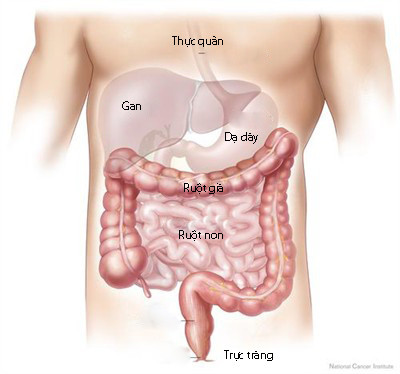Discomfort after eating - What medicine to take?
Sometimes it is simply a manifestation of overeating, eating too much too quickly, eating too much fat, eating sour fruit, or eating certain spices or foods that are not suitable or difficult to digest.
Many people often complain about feeling sluggish and indigestion after eating, especially during the Tet holiday. This syndrome is often a symptom of many different diseases related to the digestive tract. However, sometimes it is just a symptom of eating too much, too quickly, eating too much fat, eating sour fruit or eating certain spices or foods that are not suitable or difficult to digest...
If the patient has signs of abdominal pain, discomfort, nausea, bloating, or flatulence, they need to see a doctor to find out the specific disease. Indigestion can also be related to psychological stress, fatigue, inadequate nutrition, lack of exercise, etc. Therefore, it is necessary to consider carefully before deciding to take medication.
 |
Poor bowel movements often cause discomfort after eating.
This disease is closely related to some diseases of the digestive tract such as gastric and duodenal ulcers, gastroesophageal reflux disease, flatulence dyspepsia... In that case, it is necessary to take medicine according to a specific treatment regimen. The use of some anti-inflammatory and pain-relieving drugs to treat other diseases can also cause adverse drug reactions, especially when using non-steroidal anti-inflammatory drugs (NSAIDs), glucocorticoids, antibiotics... can cause gastrointestinal ulcers and also cause harmful effects such as discomfort after eating, indigestion, belching, nausea...
Common drugs used to treat this condition are:
- Antacids: are basic compounds that neutralize HCl in gastric secretions. Commonly used are aluminum salts, magnesium salts, calcium carbonate or sodium carbonate (nabica). However, it should be noted that nabica should not be used by people with high blood pressure, heart disease, liver failure or pregnancy due to its high sodium content.
- Anti-ulcer drugs: commonly used are drugs that inhibit gastric acid secretion such as proton pump inhibitors (omeprazole, lansoprazole, esomeprazole, pantoprazole...), H2 receptor inhibitors (cimetidine, famotidine, ranitidine...).
- Stimulant drugs: commonly used are substances such as domperidone, metoclopramide, itopride, mosapride, tegaserod. These drugs are very effective in stimulating gastrointestinal motility, helping food to be mixed quickly and avoiding bloating and indigestion.
- Anti-flatulence drugs: commonly used are simethicone, dimethicone and sena, which are effective in eliminating gas accumulated in the digestive tract, increasing flatulence, and reducing discomfort for the patient.
- Digestive support drugs, indigestion treatment: commonly used are digestive enzymes such as amylase, diastase, biodiastase, cellulase, lipase, protease. In addition, you can also use the digestive support drug pancreatin to help reduce the destruction of pancreatin by gastric acid. People who often suffer from discomfort after eating, bloating, flatulence, indigestion can also use some herbal teas, ginger or natural supplements to detoxify the body, promote bile, diuretic to help the digestive process go smoothly.
People with postprandial discomfort need to change the way they eat, eat slowly, chew thoroughly, and avoid eating too many stimulants or spices that cause indigestion. They should walk slowly after eating, avoid being lazy, and lie down after eating. Wear comfortable clothes, avoid wearing clothes, underwear, and belts that are too tight, which can affect the body's movement and digestion of food. During the traditional Tet holiday, they should eat foods that can easily cause bloating such as banh chung, trotters, fatty meat, ham, cakes, candies, and other sweets in moderation.
According to MSc. Le Quoc Thinh - Health & Life






